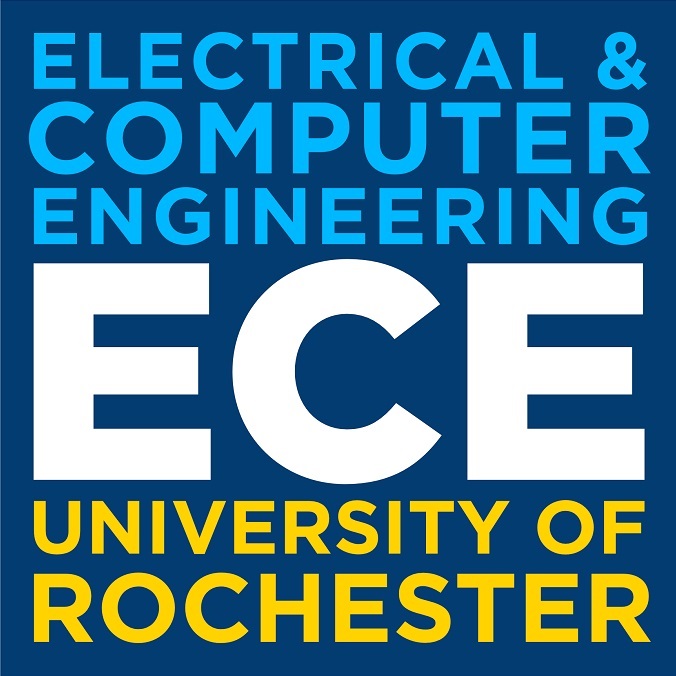ECE Seminar Lecture Series
Challenges and opportunities in emerging memory-based computing hardware towards artificial intelligence (AI)
Dr. Shinhyun Choi, Associate Professor in the School of Electrical Engineering, Korea Advanced Institute of Science and Technology (KAIST).
Wednesday, September 13, 2023
Noon–1 p.m.
Wegmans Hall 1400

Artificial intelligence (AI) will enable machines to think and solve complex tasks like human beings. In recent years, artificial neural networks have improved recognition and classification accuracy. However, state-of-the-art deep learning algorithms require large network models with multiple layers, which pose significant challenges for complementary metal-oxide-semiconductor (CMOS) implementation due to limitations in conjoining computation, memory, and communication requirements in large networks. As an alternative hardware platform, resistive devices (memristors) have been proposed for weight storage and fast parallel neural computing with low power consumption. The parallelism property of the resistive crossbar arrays for matrix-vector multiplication enables significant acceleration of core neural computations. In this talk, Prof. Choi will present a systematic study on the fundamental understanding of resistive switching devices. He will talk about the approach how to achieve highly reliable artificial neurons and synapses for neuromorphic computing which can be a key step paving the way towards post von Neumann computing. In addition, he will also introduce the application of memristor crossbar network, which suggests potential applications of memristor network to effective data processing for solving real-world problems. He will bring experimental demonstration of memristor-based system applications. Finally, he will discuss the projections and future directions of the memristor-based system.
 Dr. Shinhyun Choi is Associate Professor in the School of Electrical Engineering at Korea Advanced Institute of Science and Technology (KAIST). His research focuses on (1) new emerging memory/computing device development; (2) its applications in integrated systems such as edge computing, neuromorphic computing and memory functions; and (3) new operating mechanism development for conventional 3-terminal transistor-based memory device. He graduated Summa Cum Laude from Seoul National University, Korea in 2009 with a Bachelor of Science in Electrical Engineering. He obtained his Master’s and Ph.D. in Electrical Engineering at the University of Michigan, Ann Arbor in 2011 and 2015, respectively. He was a Postdoctoral Associate at Massachusetts Institute of Technology (MIT) from 2015 to 2018, where he investigated the fundamental understanding and neuromorphic applications of resistive switching devices. He has published his works in 28 peer-reviewed articles including Nature, Nature Materials, Nature Communications, Science Advances, Nano Letters, ACS Nano. His works have been highlighted in Nature News & Views, Nature Materials News & Views, Nature Nanotechnology Research Highlights, Nature Communications Editors’ Highlights.
Dr. Shinhyun Choi is Associate Professor in the School of Electrical Engineering at Korea Advanced Institute of Science and Technology (KAIST). His research focuses on (1) new emerging memory/computing device development; (2) its applications in integrated systems such as edge computing, neuromorphic computing and memory functions; and (3) new operating mechanism development for conventional 3-terminal transistor-based memory device. He graduated Summa Cum Laude from Seoul National University, Korea in 2009 with a Bachelor of Science in Electrical Engineering. He obtained his Master’s and Ph.D. in Electrical Engineering at the University of Michigan, Ann Arbor in 2011 and 2015, respectively. He was a Postdoctoral Associate at Massachusetts Institute of Technology (MIT) from 2015 to 2018, where he investigated the fundamental understanding and neuromorphic applications of resistive switching devices. He has published his works in 28 peer-reviewed articles including Nature, Nature Materials, Nature Communications, Science Advances, Nano Letters, ACS Nano. His works have been highlighted in Nature News & Views, Nature Materials News & Views, Nature Nanotechnology Research Highlights, Nature Communications Editors’ Highlights.
Refreshments will be provided.
